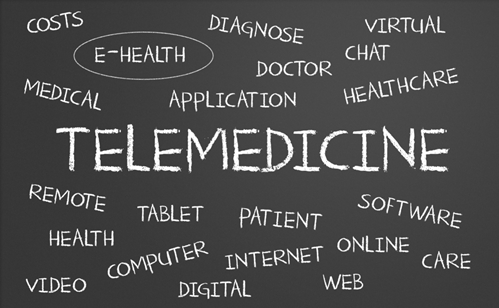HIPAA guidelines updated for improved patient access
One major role that health IT has played over the years is improving patient access to essential health information. In order to ensure that this trend continues, the Department of Health and Human Services recently announced that it has made several changes to the Health Insurance Portability and Accountability Act. These updates are centered around increasing patient engagement by enhancing electronic access to medical records.
HIPPA changes to improve patient access
The HHS explained that the HIPAA updates will ultimately improve the health care industry as a whole. They will serve as clarifications for patients who may have wanted to access their health information, but simply did not have the tools or information they needed from their providers.
One of the major problems that the HHS addressed was that providers often take a long time to share access to medical records when requested by the patient. Many also ask that the patient come into the office to receive the appropriate forms, which should no longer be the case.
The changes have received approval from industry stakeholder group the National Partnership for Women & Families and the members of its GetMyHealthData campaign. The organization and its initiative both work for affordable and accessible health care.
There were a few changes and clarifications mentioned by the HHS that were previously suggested by the GetMyHealthData campaign. These include prohibiting doctors from requiring the use of regular mail and the physical presence of patients and that doctors must treat the 30-day time requirement in which patients receive their health records as an outer limit.
Campaign officials also provided data on how to send records to people other than patients – such as a family member – and stated that, if patients request an electronic copy of their medical forms, providers must be able to produce these in a timely manner.
Creating a brighter future for patients
Requesting health information from their providers is something that many patients find confusing, which significantly limits the personal health data they have access to, according to patient testimonies gathered by the National Partnership for Women and Families.
"The guidance released yesterday is an important step forward in helping patients exercise their right to access their health information under HIPAA, including electronically," coordinator Christine Bechtel explained in a press release. "Our cadre of volunteer 'tracer' patients has found that, unfortunately, confusion surrounding HIPAA persists and often means that patients don't get the kind of access to their health care information they need."
Along with patients, the updated HIPAA guidelines are helpful for health information management professionals who serve as liaisons between patients and providers, as they can now share new resources that enhance the accessibility of health data throughout the sector.
Enhanced background checks for firearms purchases
The HIPAA changes are also meant to play a role in enhancing background checks for those purchasing firearms, as covered entities are now able to share health records with the National Instant Criminal Background Check System. This will help close many of the gaps that are currently present in the background check process. However, this aspect of the modified guidelines will not impact the patient-doctor relationship.
"This rule applies only to a small subset of HIPAA covered entities that either make the mental health determinations that disqualify individuals from having a firearm or are designated by their states to report this information to NICS, and it allows such entities to report only limited identifying, non-clinical information to the NICS," noted the HHS.
In addition to improving the background check for firearms, the HHS and industry stakeholders are hopeful that the HIPAA changes will make patient access easier in the very near future and enhance care outcomes through an increase in patient engagement.



